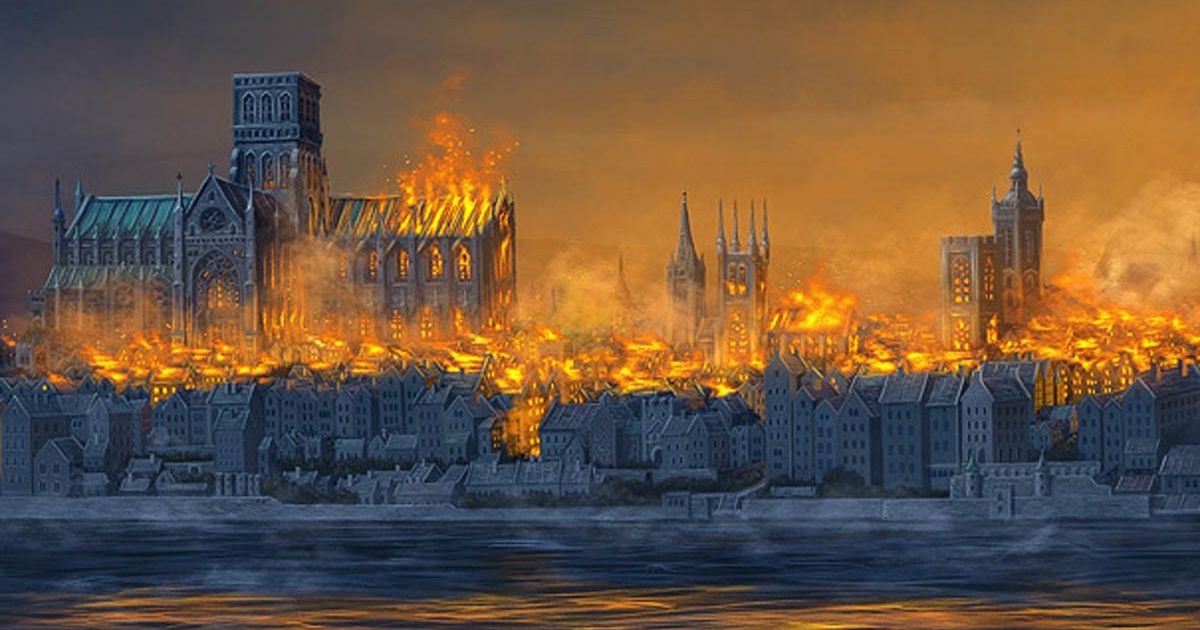
The 1666 Great Fire of London’s 350th anniversary was in 2016 (artistic depiction of the Great Fire in the Daily Mirror Online)
September 2, 1666 – The Great Fire of London began in a bakery in Pudding Lane near the Tower of London. Over the next three days, the fire gutted the medieval City of London inside the old Roman city wall. It consumed 13,200 houses, 87 parish churches, St Paul’s Cathedral, and most of the buildings of the City authorities. It is estimated to have destroyed the homes of 70,000 of the City’s 80,000 inhabitants. Amazingly, only six(!) people are thought to have died in the fire.
The Great Fire started at a bakery (or baker’s house) on Pudding Lane shortly after midnight on Sunday, 2 September and spread rapidly west across the City of London. The major firefighting technique of the time was to create firebreaks by means of demolition; this, however, was critically delayed owing to the indecisiveness of Lord Mayor of London. By the time that large-scale demolitions were ordered on Sunday night, the wind had already fanned the bakery fire into a firestorm that defeated such measures. The fire pushed north on Monday into the heart of the City.
Rather than admit the fire was a tragic accident, many people wanted to blame someone. The homeless population of London, as well as Dutch or French residents, were blamed for either starting the fire or helping to spread it. (Blaming immigrants and the poor is always a popular pastime, I’m afraid!) Mobs looted the shop of a French painter and destroyed it; an English blacksmith walked up to a Frenchman in the street and hit him over the head with an iron bar.
Fire was long considered one of the four basic building blocks of the universe; all matter was thought to arise from various combinations of the four elements of earth, air, fire, and water. Some thought fire was the most basic and fundamental of the elements. Fire was a magical, transformative element as it could melt ice, evaporate water, melt and purify metal or solder metals together, forge useless bits into weapons, or turn almost anything into something else, i.e. dust and ash. In Arabic mythology, the djinn were formed from fire and a soul, just as humans were formed from earth and a soul. Djinn were magical because fire itself was magical.
